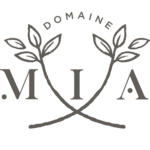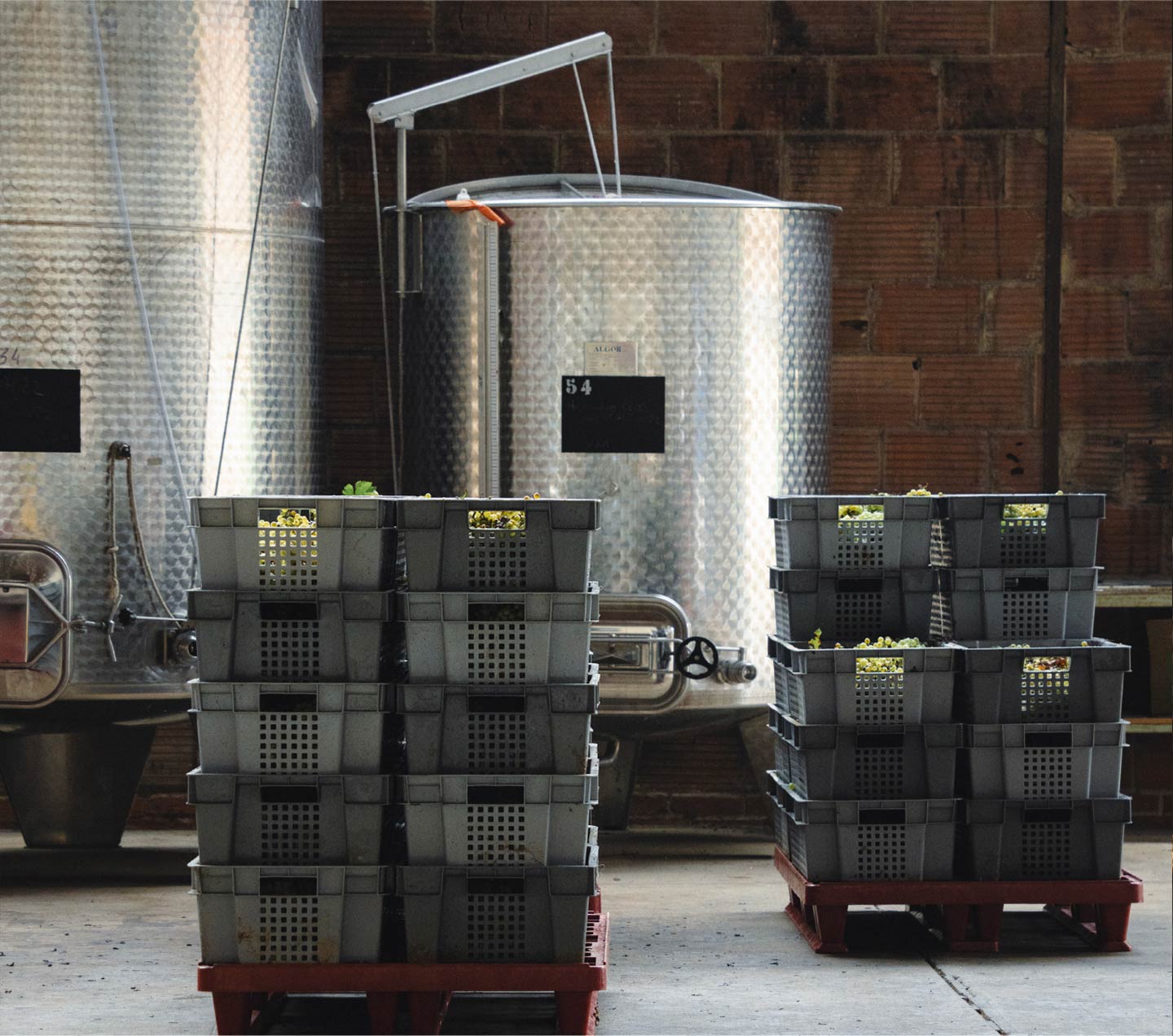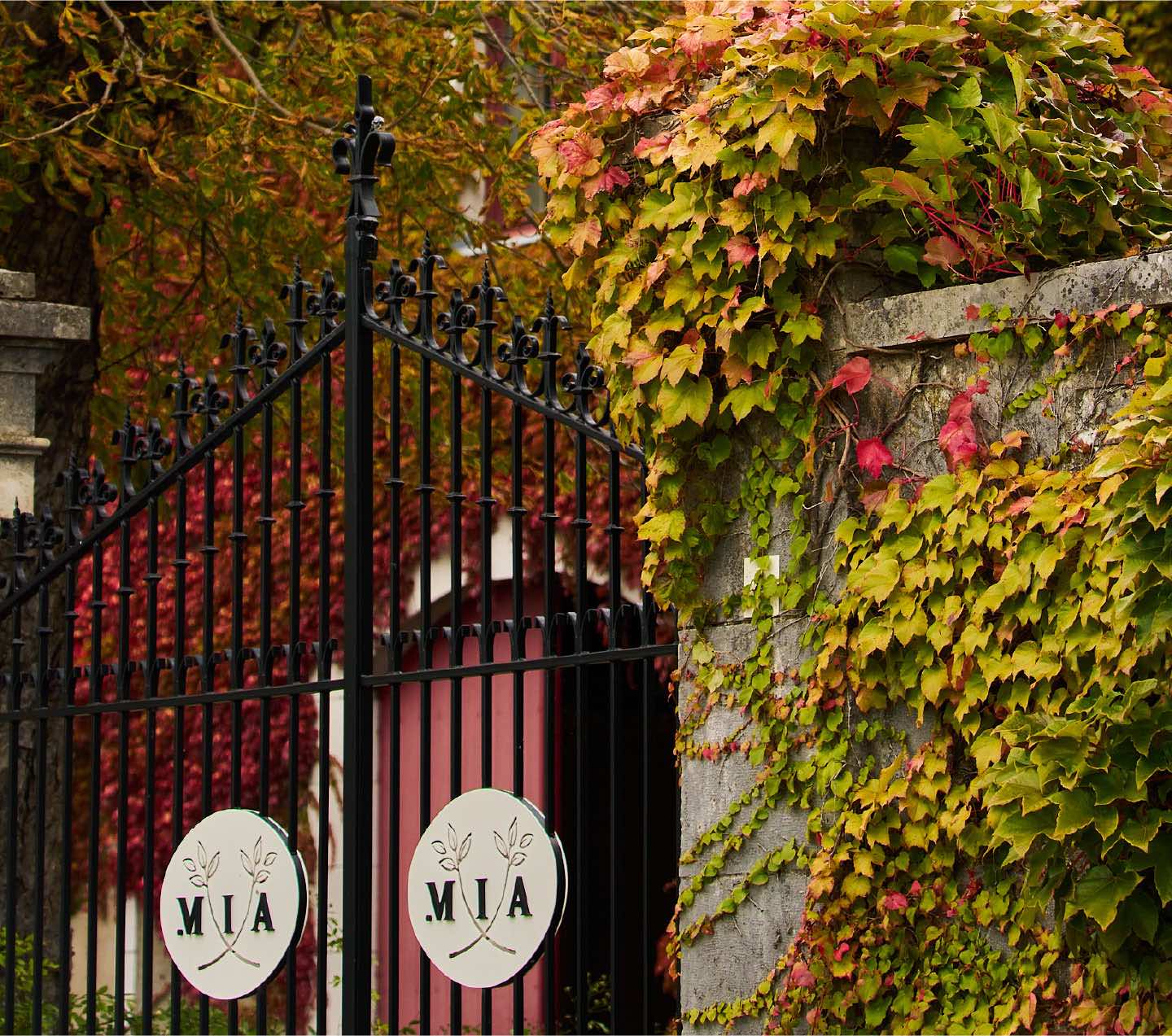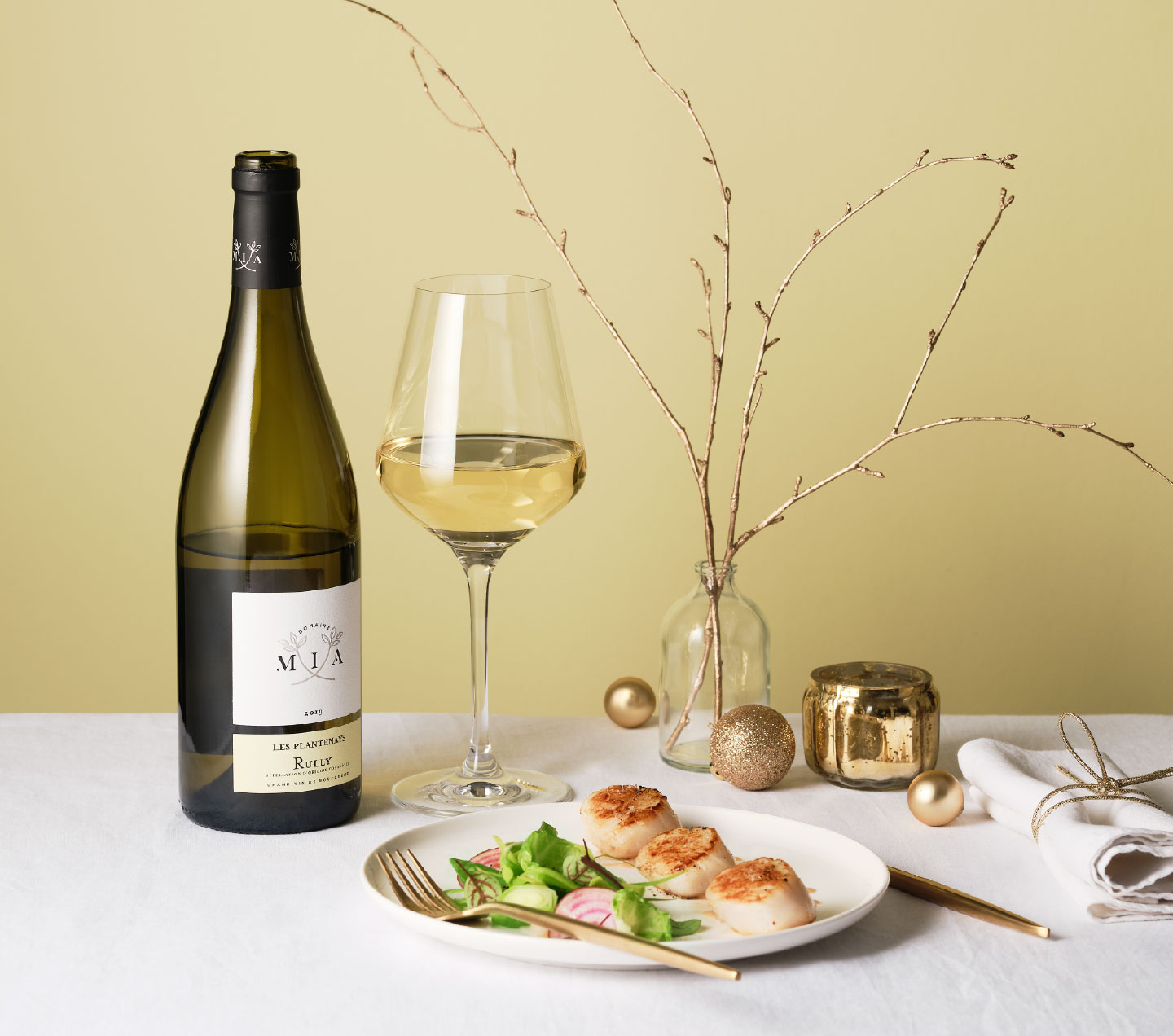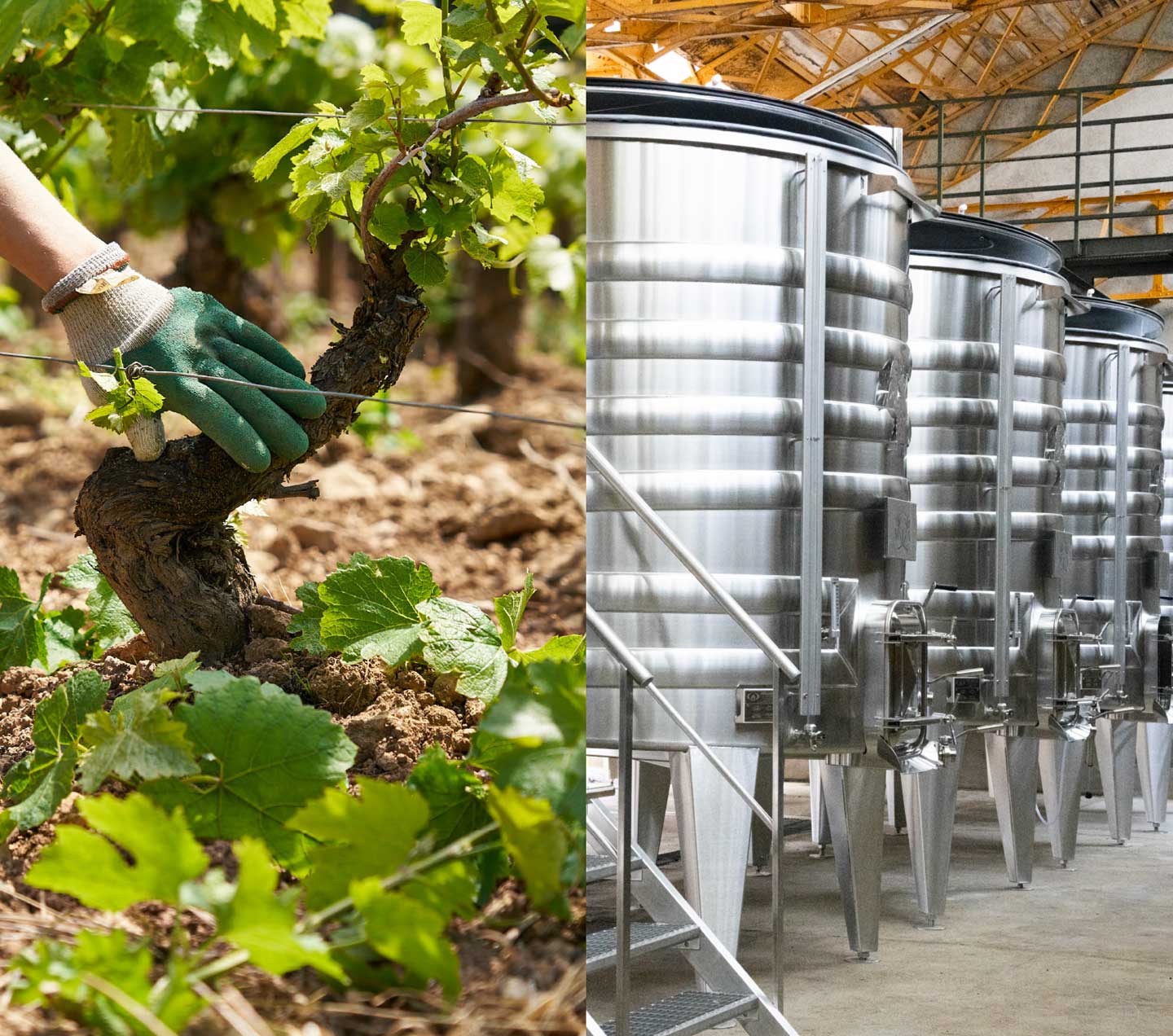Burgundy, the birthplace of great wines, is undergoing a transformation with the rise of organic viticulture.More and more estates are adopting environmentally friendly practices to preserve the richness of their terroir.
Between organic certifications, biodynamics, and innovative techniques, Burgundy winemakers are redefining their craft to offer wines that are produced with respect for nature and the terroir. Some new practices are shaping the future of organic wines in Burgundy.
The rise of organic wines in Burgundy
The transition to organic farming in Burgundy has experienced significant growth in recent years. Today, nearly 17% of the regional vineyard is certified or in the process of converting to organic agriculture, a number that continues to rise. This transition responds to two key demands: preserving the environment and meeting the expectations of consumers who are increasingly concerned about the quality and origin of the products they consume.
Regenerative organic viticulture
The simplest definition of organic viticulture is the avoidance of chemical fertilizers, but the evolution of practices has led organic viticulture toward what is now called “regenerative” viticulture.
Unlike conventional methods that focus on yield, organic viticulture aims to improve soil health and restore vineyard ecosystems to make them sustainable and resilient, especially in the face of climate change.
Its approach is holistic, promoting biodiversity and soil fertility. For example, at Domaine MIA, we have installed dozens of beehives in the heart of the vineyard to encourage pollination... and produce our own honey!
From organic viticulture to biodynamics
A new practice in organic viticulture involves adopting the principles of biodynamics.. Like Domaine MIA, this viticulture offers a holistic approach based on ancient practices such as the use of natural plant-based preparations, respecting lunar cycles, and preserving biodiversity.
Soil work is done without chemicals, fostering biodiversity and the authentic expression of the terroir. Instead of chemical pesticides, preparations called “preparats” are used to treat, fertilize, or repel pests. At Domaine MIA, we primarily use horn manure and plant infusions.
The preparation and application of these remedies require great precision. The goal is not to cure but to stimulate soil life, encourage plant balance, and boost the plant’s natural defense mechanisms. Biodynamics does not aim to protect nature but rather to stimulate it and contribute to its evolution.
Thus, biodynamics is deeply integrated into regenerative viticulture, as soil health is at the core of biodynamic farming, aiming to revive and maintain a vibrant, healthy soil and produce the most natural wines possible.
Organic wines: innovation and new practices
Each season, for every new vintage, winemakers explore new methods to continually improve the quality of organic wines.
Among the most widespread practices in the vineyards are:
- Cover crops: Using plants to protect the soil, improve its composition, and prevent erosion.
- Composting : At Domaine MIA, we create our own compost from vine cuttings and cow manure, which serves as a base fertilizer for plantings.
Conçu selon la méthode Herody, ce compost bénéficie d’un processus de maturation optimisé garantissant une fertilisation efficace et durable :
o Selection of raw materials: Use of manure from free-range cattle (90%) and poultry manure (10%), ensuring a good balance of nitrogen and carbon.
o Controlled aerobic composting: The manure is turned four times at precise intervals to ensure good oxygenation and avoid harmful anaerobic fermentation. - Agroforestry: : Incorporating trees and shrubs into vineyards to improve biodiversity and protect crops.
- No-till or gentle plowing on horseback as at Domaine MIA: To preserve soil structure and encourage microbial life.
In response to climate change and shifting frost periods, Burgundy winemakers are looking for new ways to protect vines from late frosts.
At Domaine MIA, several strategies have been implemented:
- Herbal and flower infusions: Ces préparations, composées exclusivement d’éléments naturels, enrichissent le compost en micro-organismes bénéfiques et favorisent une meilleure assimilation des nutriments par les sols. Elles permettent ainsi d’améliorer la structure du sol et d’intensifier la vitalité des vignes. Ces infusions naturelles stimulent la concentration en sucre dans la sève des vignes, les rendant plus résistantes aux températures négatives.
- L’éolienne antigel : Installée au sein du domaine, elle brasse l’air autour des parcelles pour éviter la stratification de l’air froid près du sol. Ce brassage permet de gagner quelques degrés et de réduire les dégâts causés par le gel.
- Two-phase pruning: This technique delays part of the vine pruning, postponing bud break and better protecting the buds from late frosts.
In winemaking, practices are also evolving, notably with the choice of stainless steel tanks replacing concrete or wooden ones. This is the case at Domaine MIA, where a new winery allows precise temperature control, optimizes fermentations, preserves the aromatic finesse of grape varieties without woody interference, and ensures essential hygiene for long aging, all to produce exceptional, expressive wines with great naturalness.
The impact of organic viticulture on the taste and quality of wines
Practicing organic viticulture. is not only an ecological approach but also reveals a new sensory dimension. Organic wines from Burgundy offer a more sincere expression of the terroir, with more pronounced aromas and a structure that is often more balanced. This approach allows the production of wines that are both elegant, complex, and representative of their original climate.
Domaine MIA: a pioneering commitment to exceptional organic wines
In the late 2000s, fewer than 5% of Burgundy’s vineyards were engaged in organic practices. The majority of Burgundy’s viticulture remained conventional, heavily reliant on phytosanitary treatments and chemical fertilizers.
Only a few visionary estates, such as Domaine MIA, chose to turn to organic practices, opting for a more demanding but environmentally respectful form of viticulture.
Among the iconic estates in Burgundy's organic transition, Domaine MIA stands out for its commitment to sustainable viticulture and environmental respect. The transition was a true challenge, pushing technical limits, learning to work without chemical inputs, developing natural solutions to combat vine diseases, and accepting risks.
Despite these challenges, the estate received Ecocert certification in 2011.
But the commitment didn’t stop there: convinced that the land and vines must be respected in their natural balance, Domaine MIA decided to go even further by integrating biodynamic practices into its vineyards starting in 2021, with the goal of enhancing the expression of the terroir and embedding the estate in a sustainable dynamic. This practice, still very marginal in Burgundy,
includes the use of natural preparations such as horn manure, soil stimulation with plant infusions, and the complete elimination of chemical inputs. This forward-thinking approach was rewarded with Demeter certification in 2023.
Located in the heart of the Côte Chalonnaise, we implement rigorous practices to preserve the natural balance of our vines and reveal the full authenticity of our terroir. Thanks to an approach based on biodynamics and meticulous winemaking, Domaine MIA offers Burgundy organic wines of great finesse, reflecting Burgundy’s excellence.
Now it’s your turn to enjoy them!
